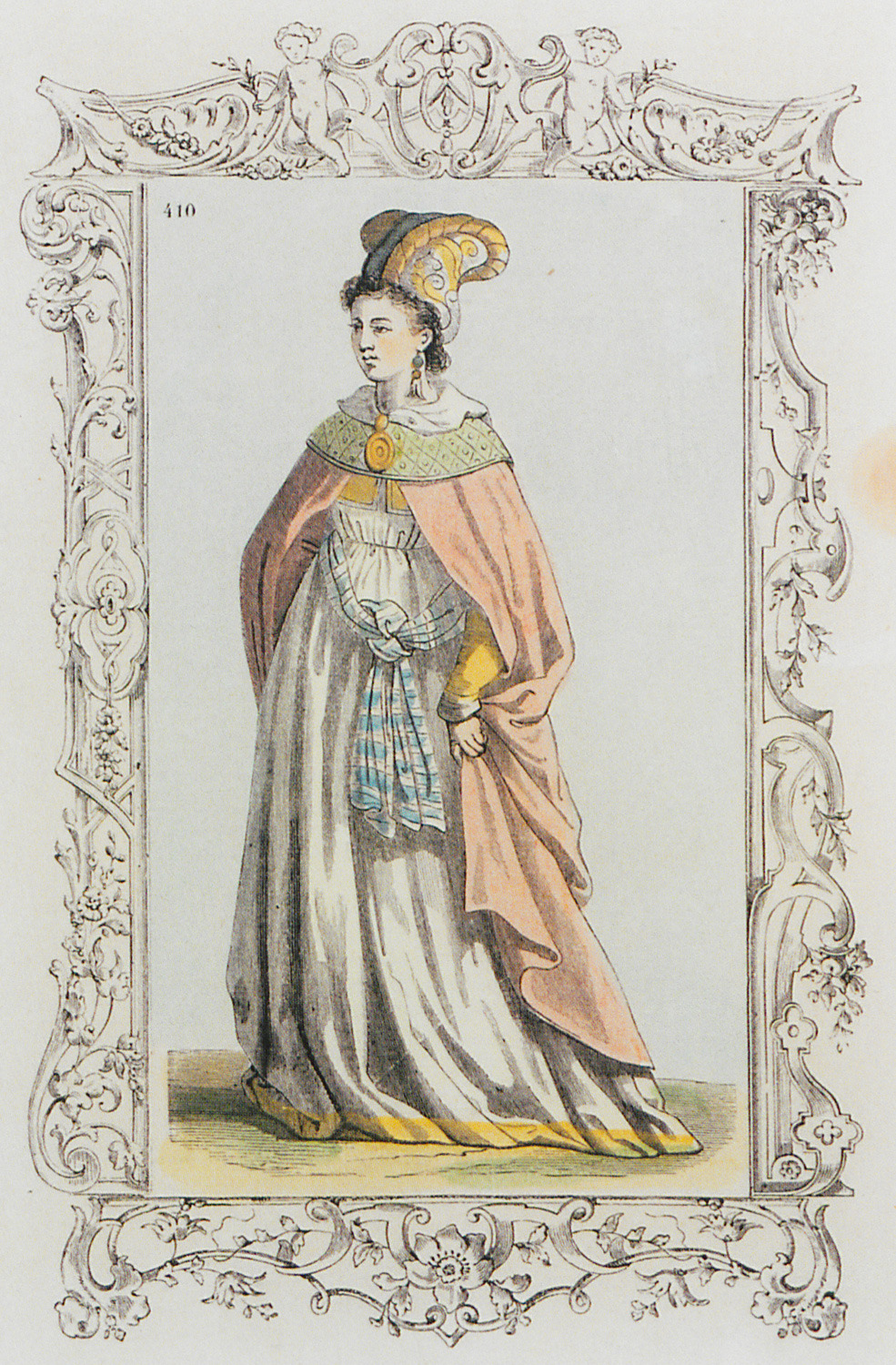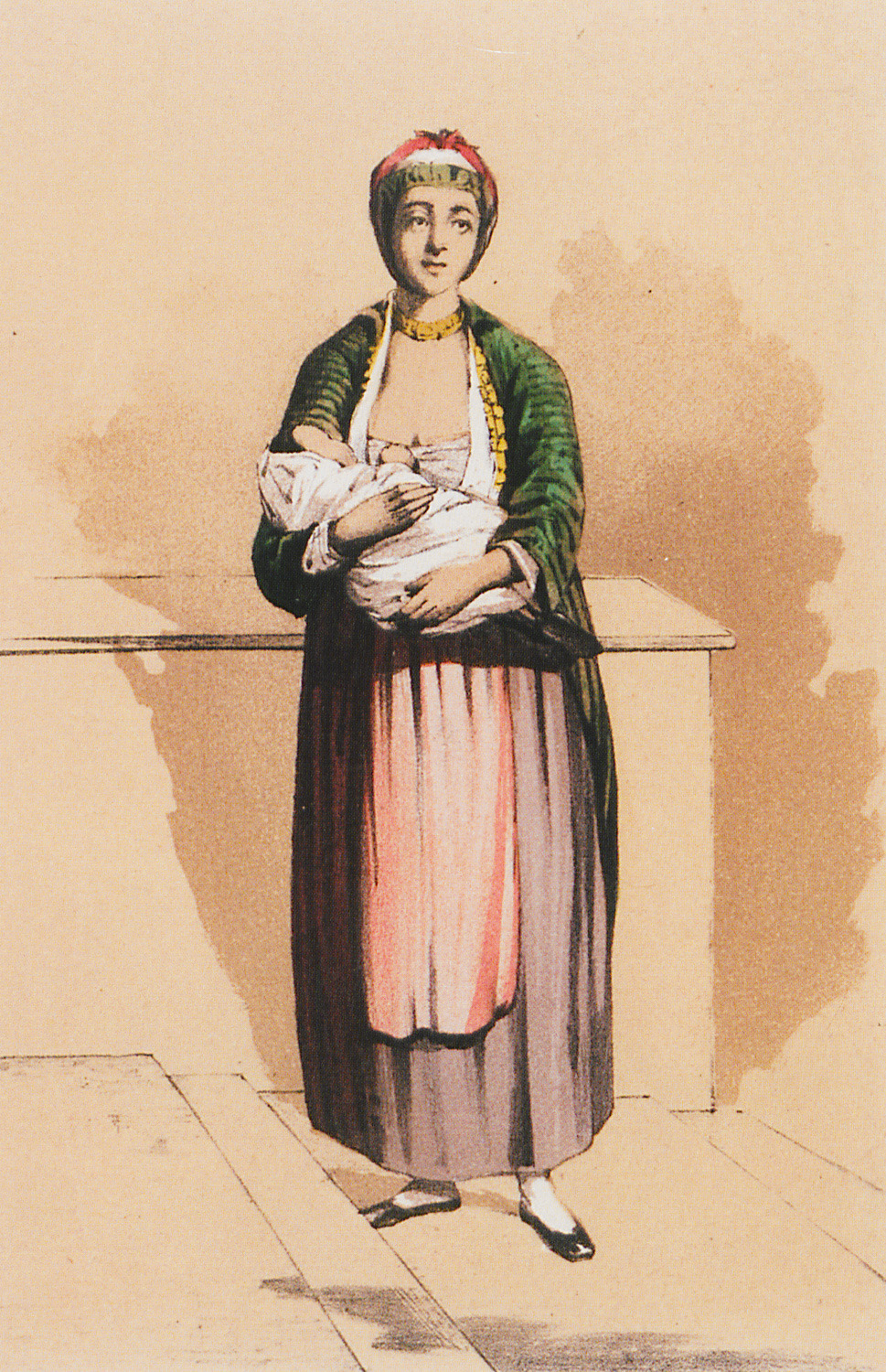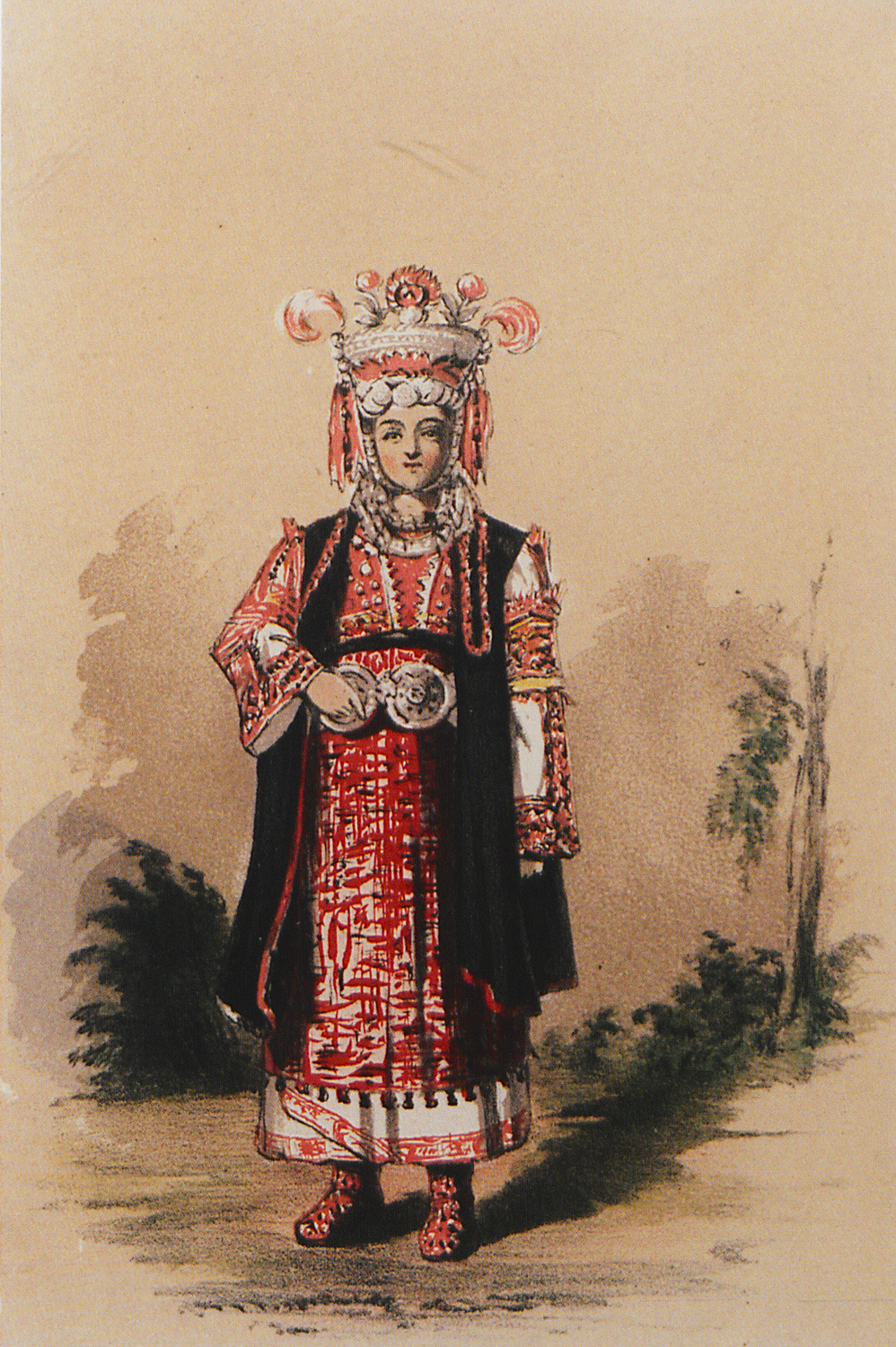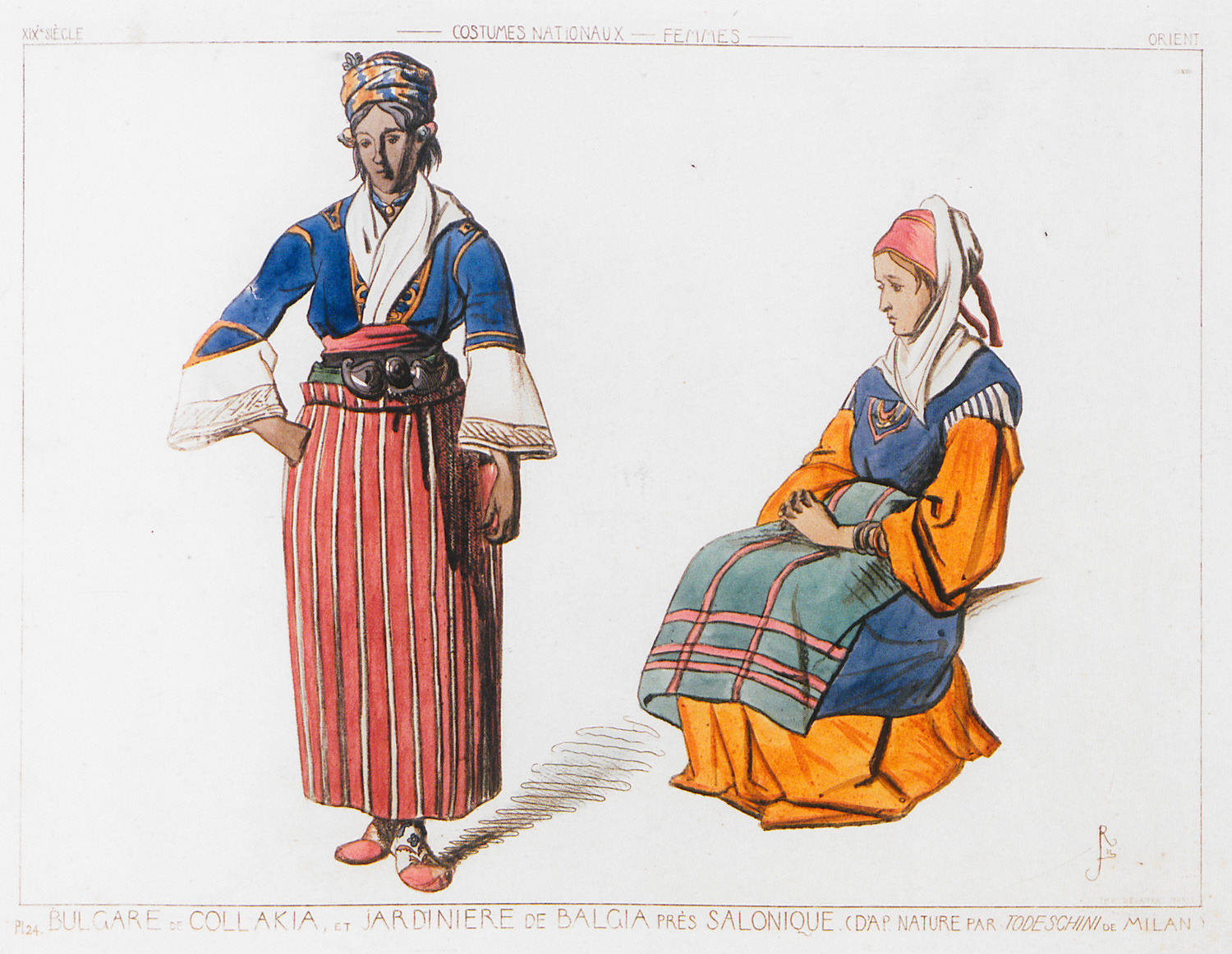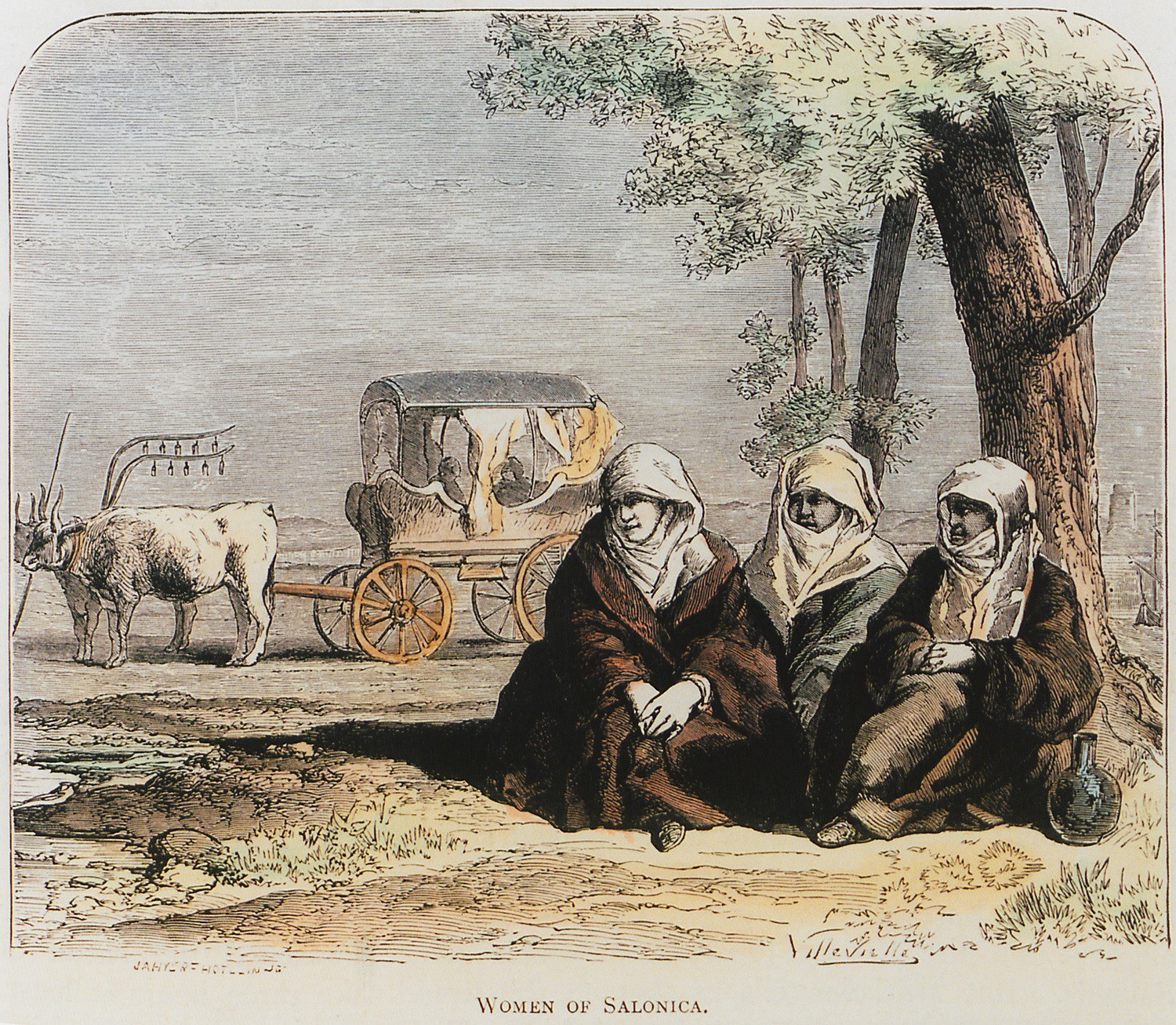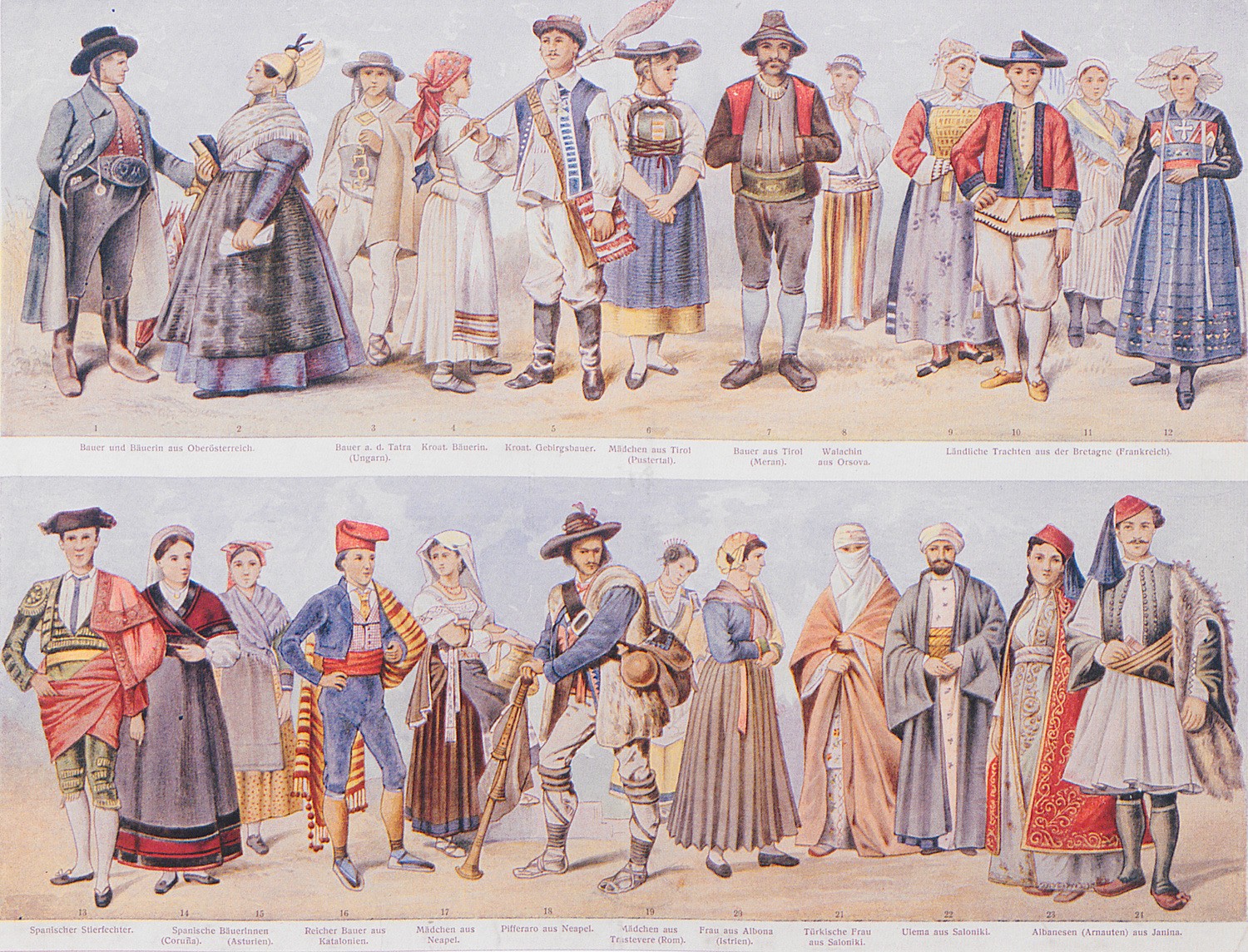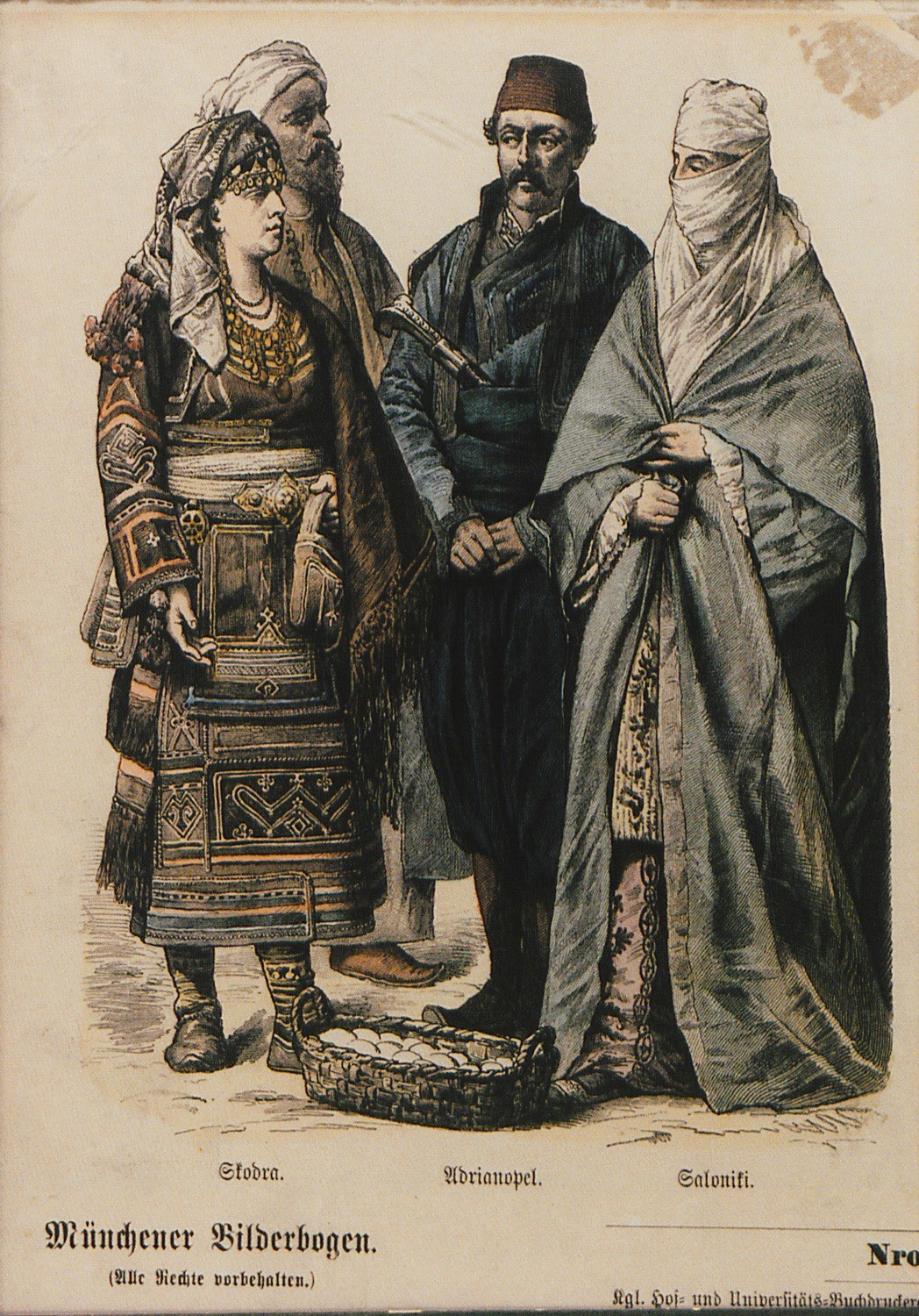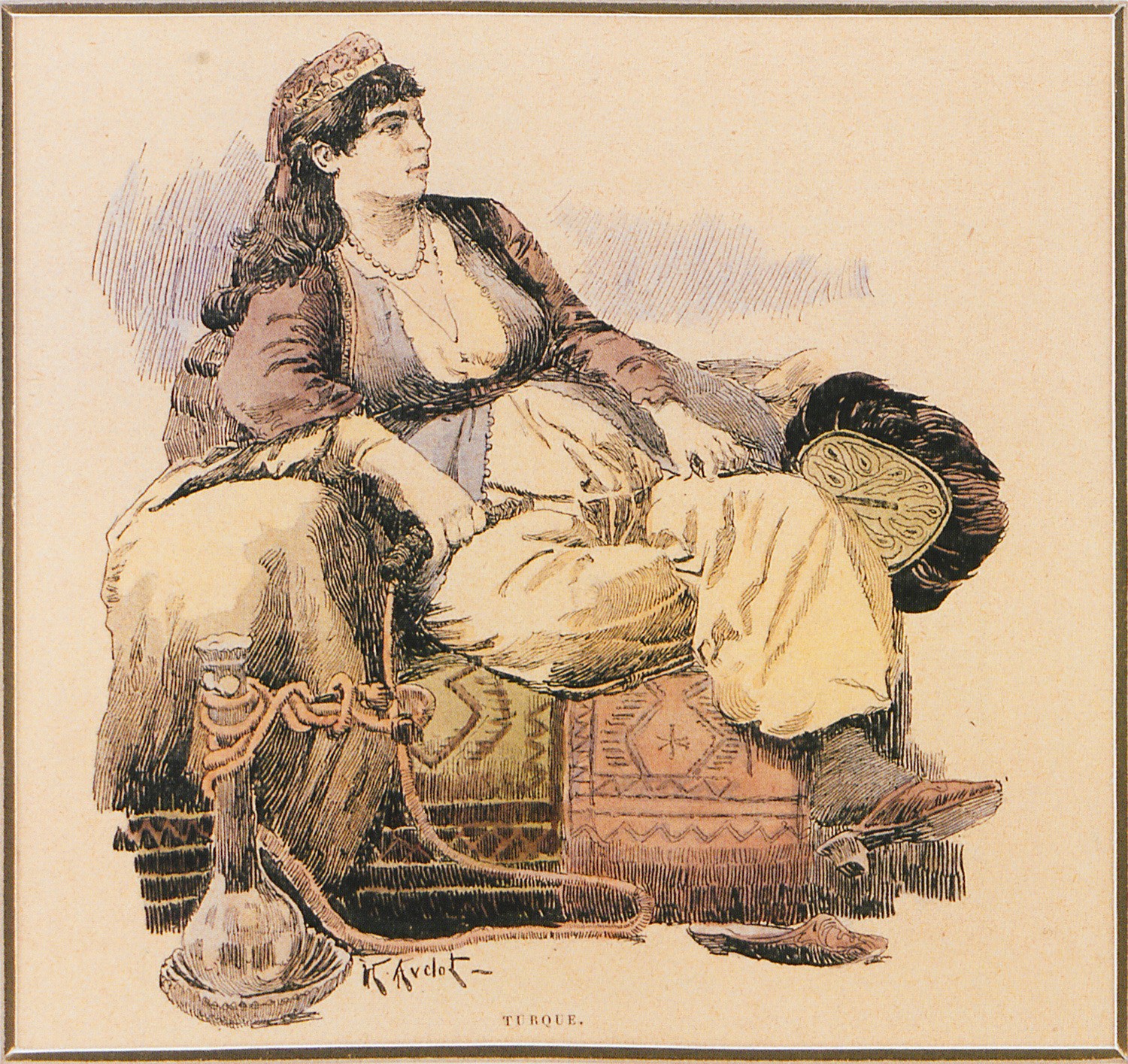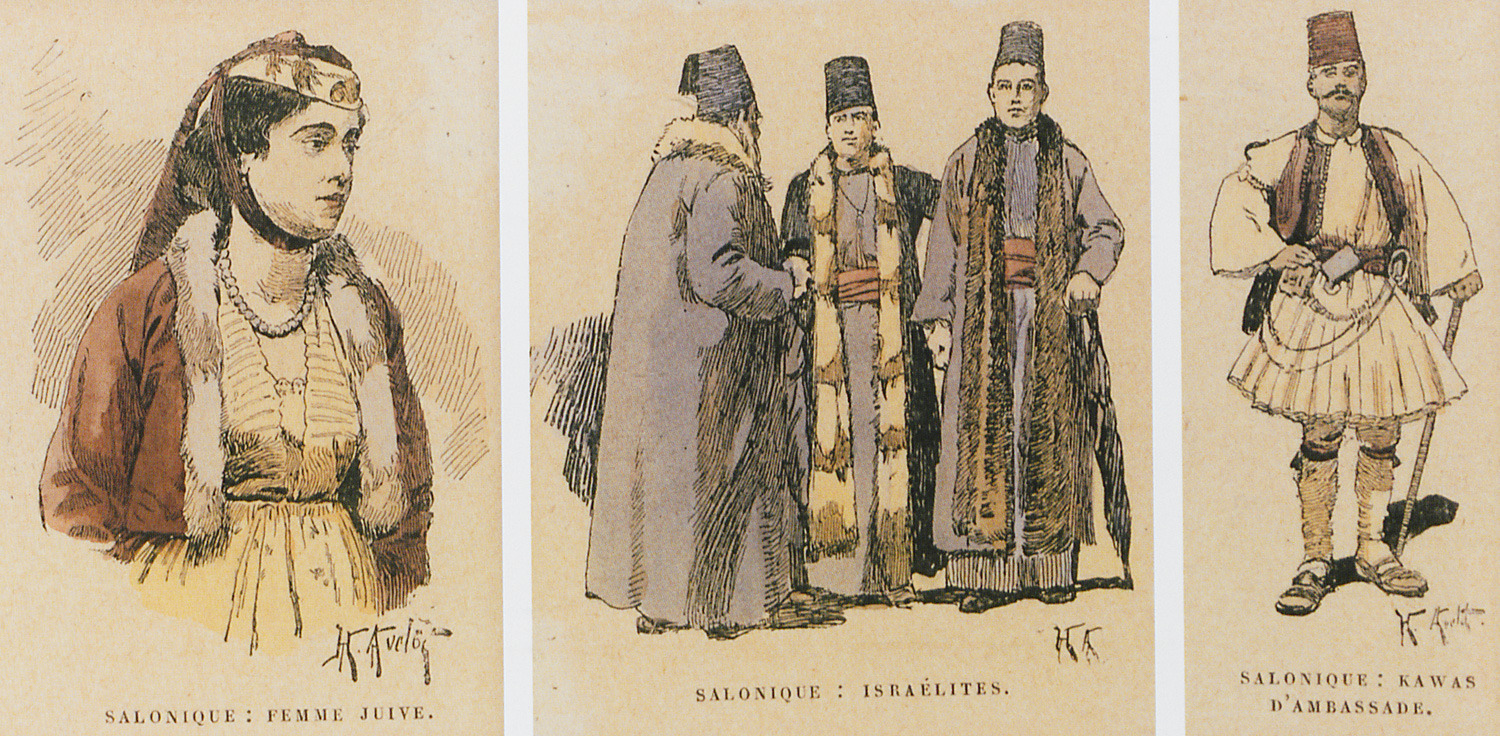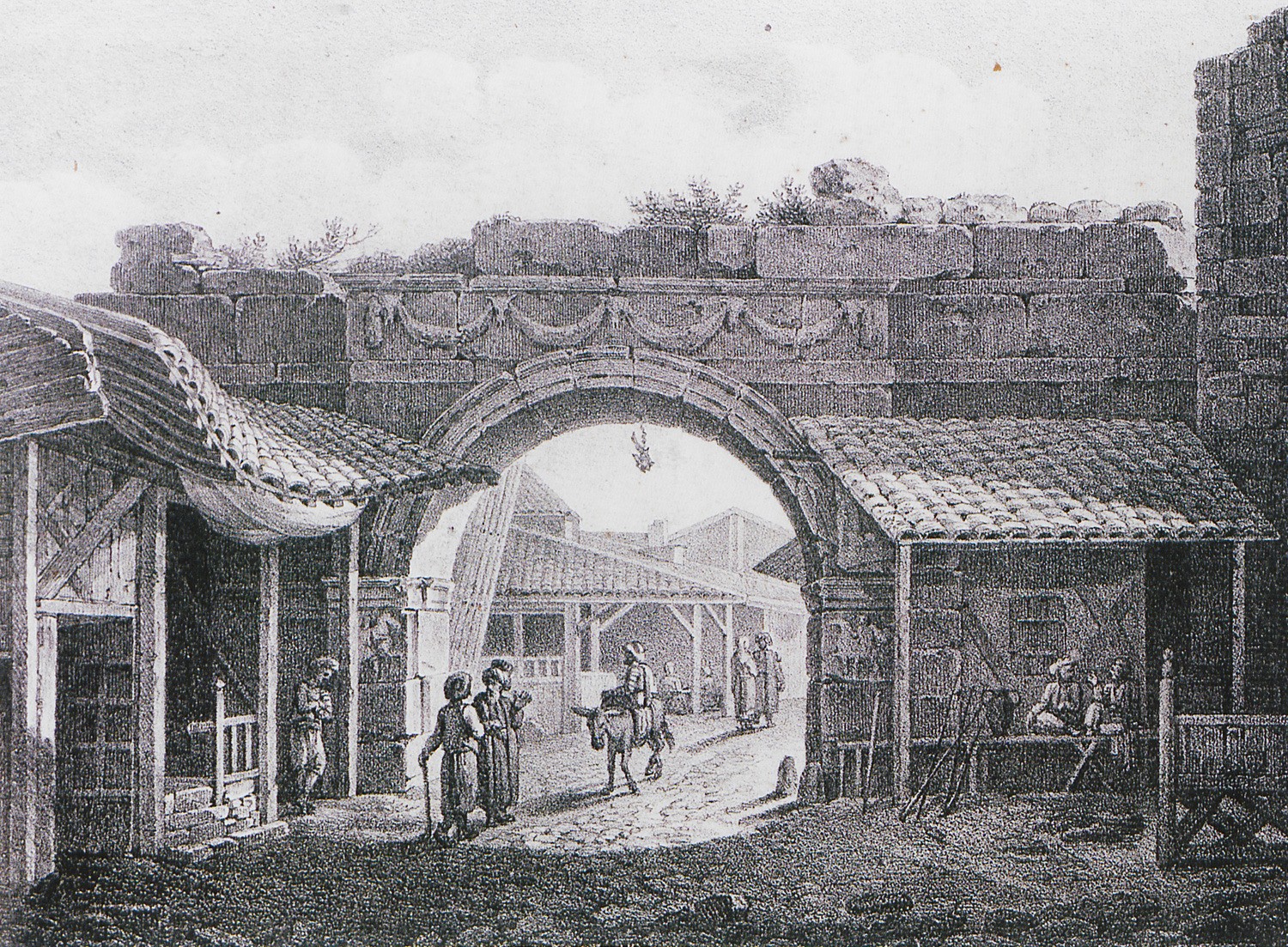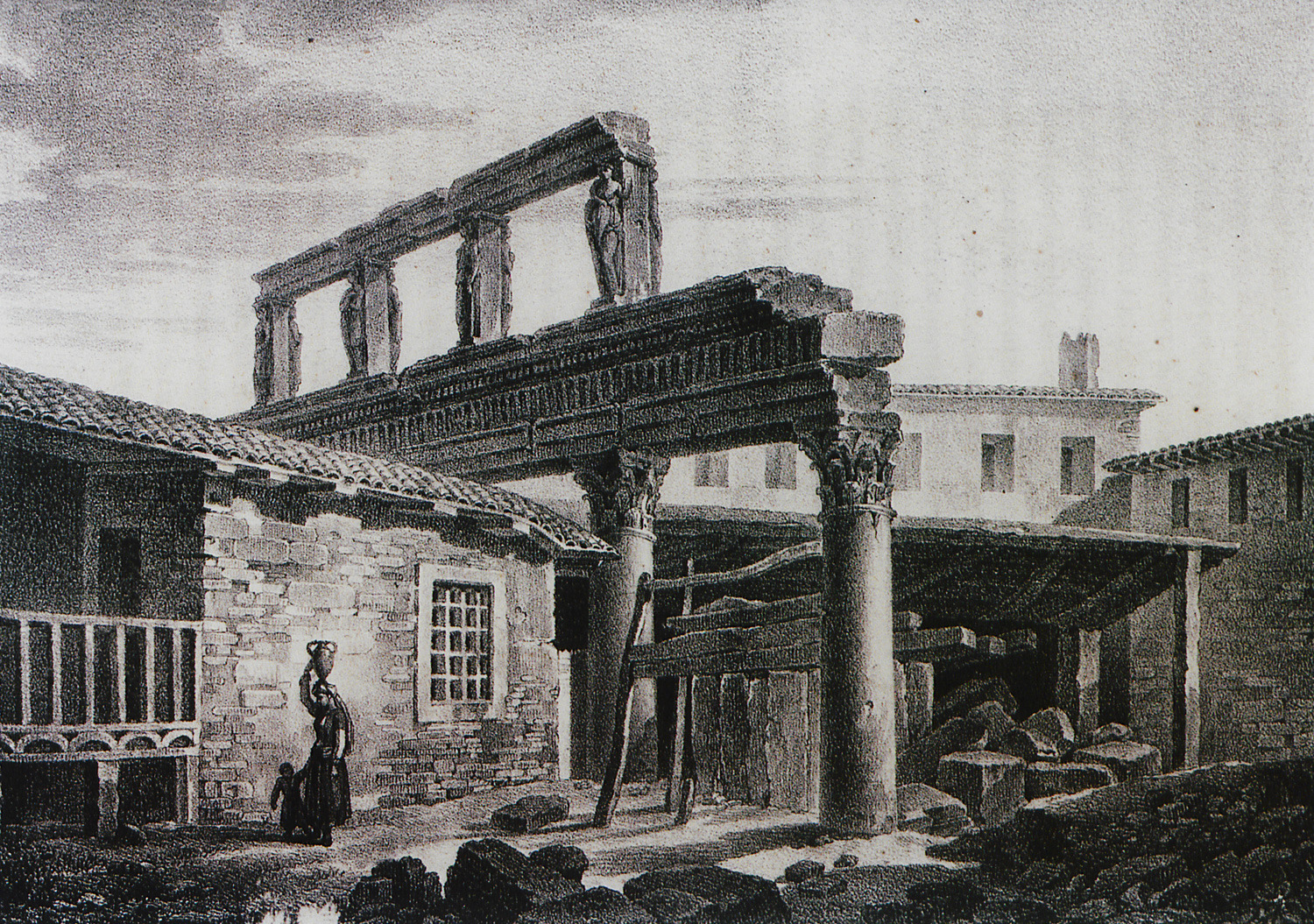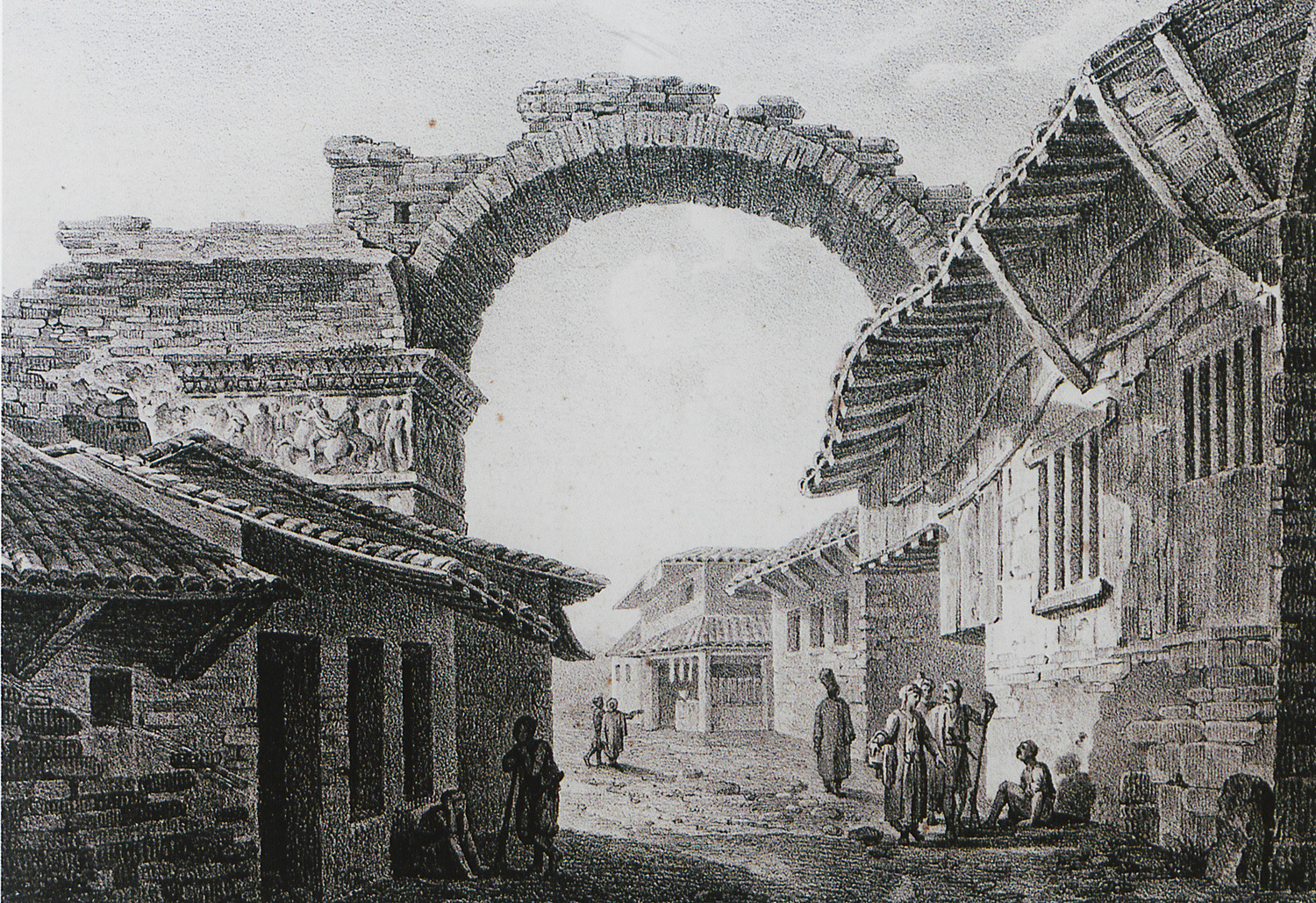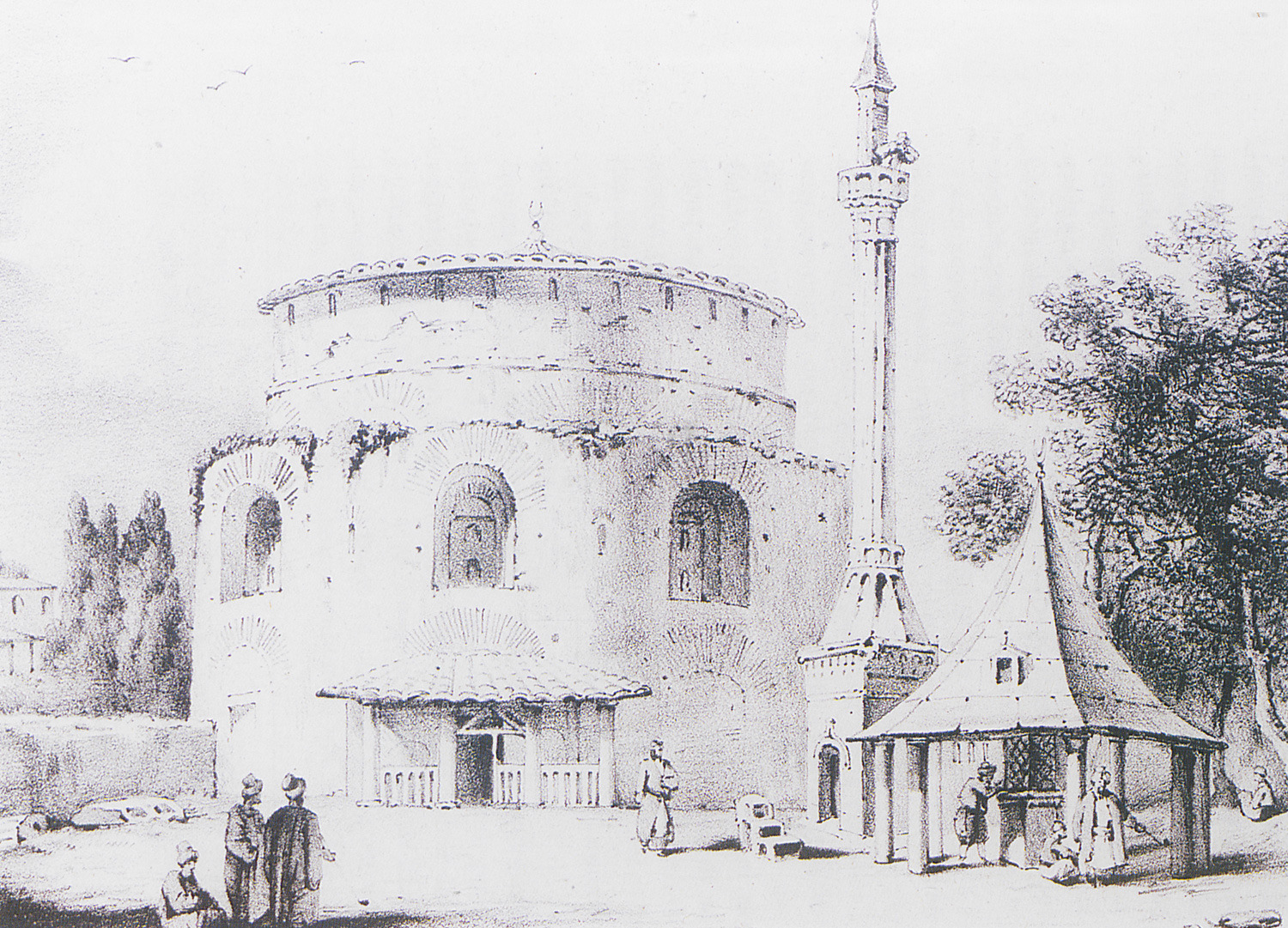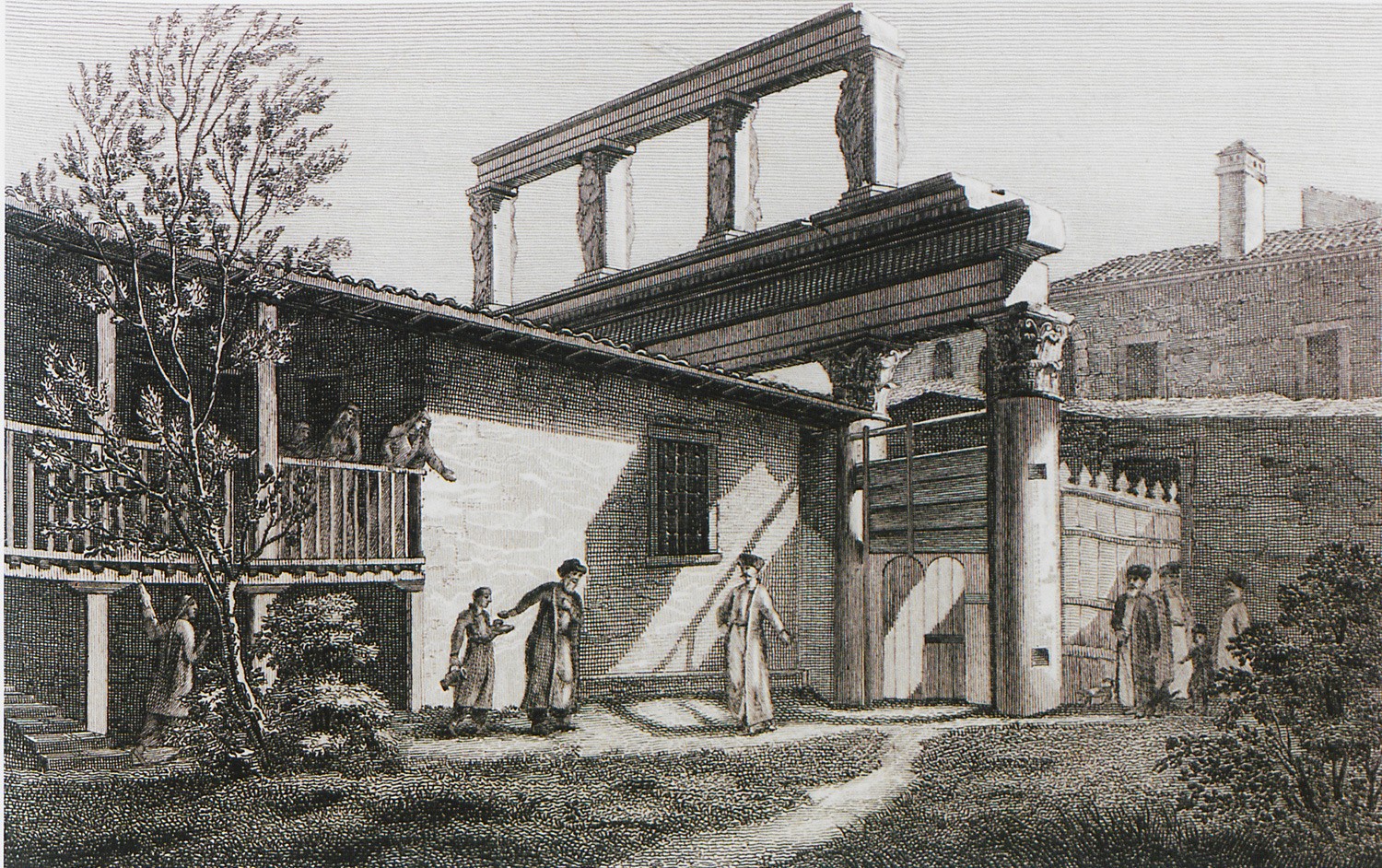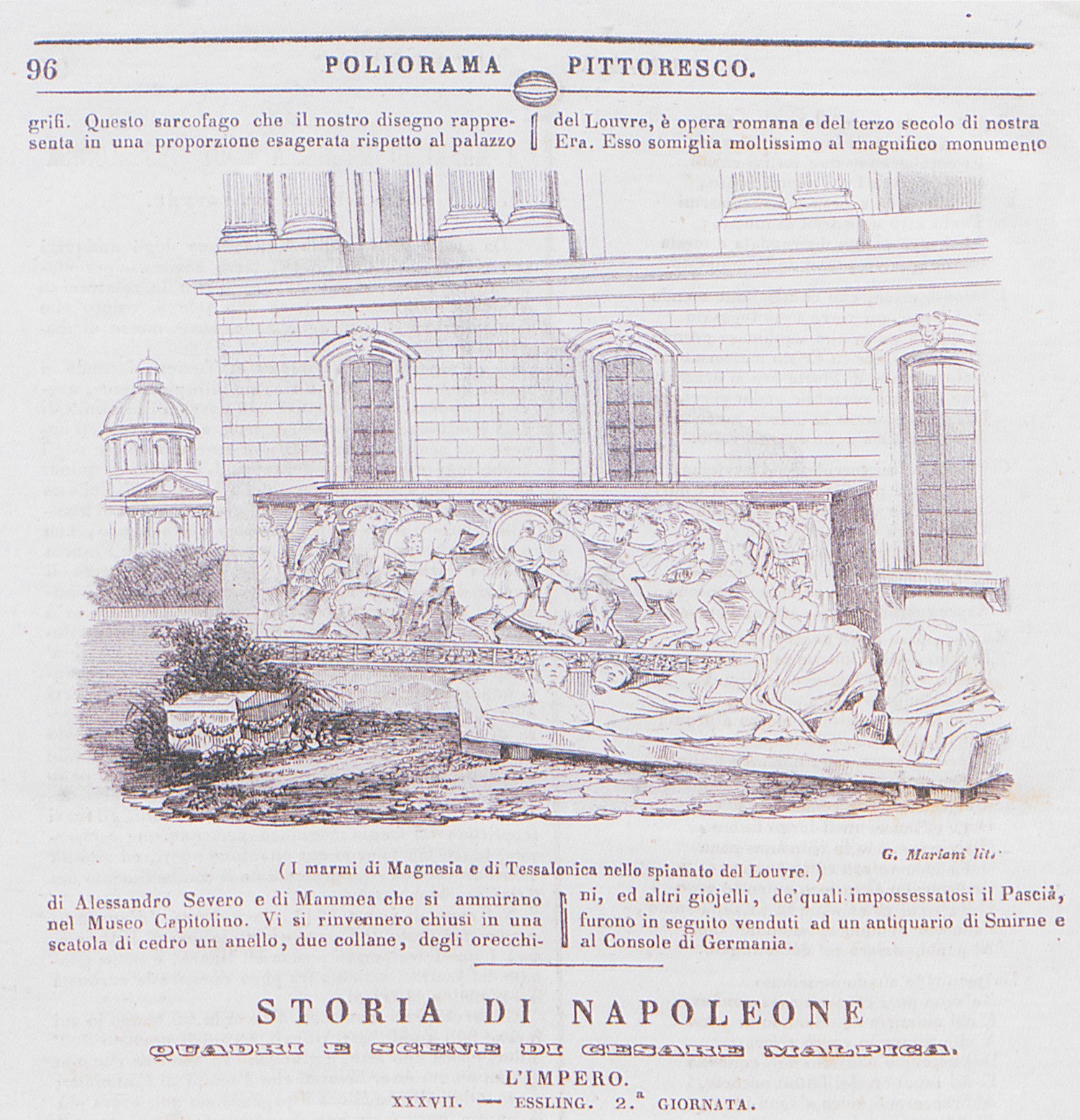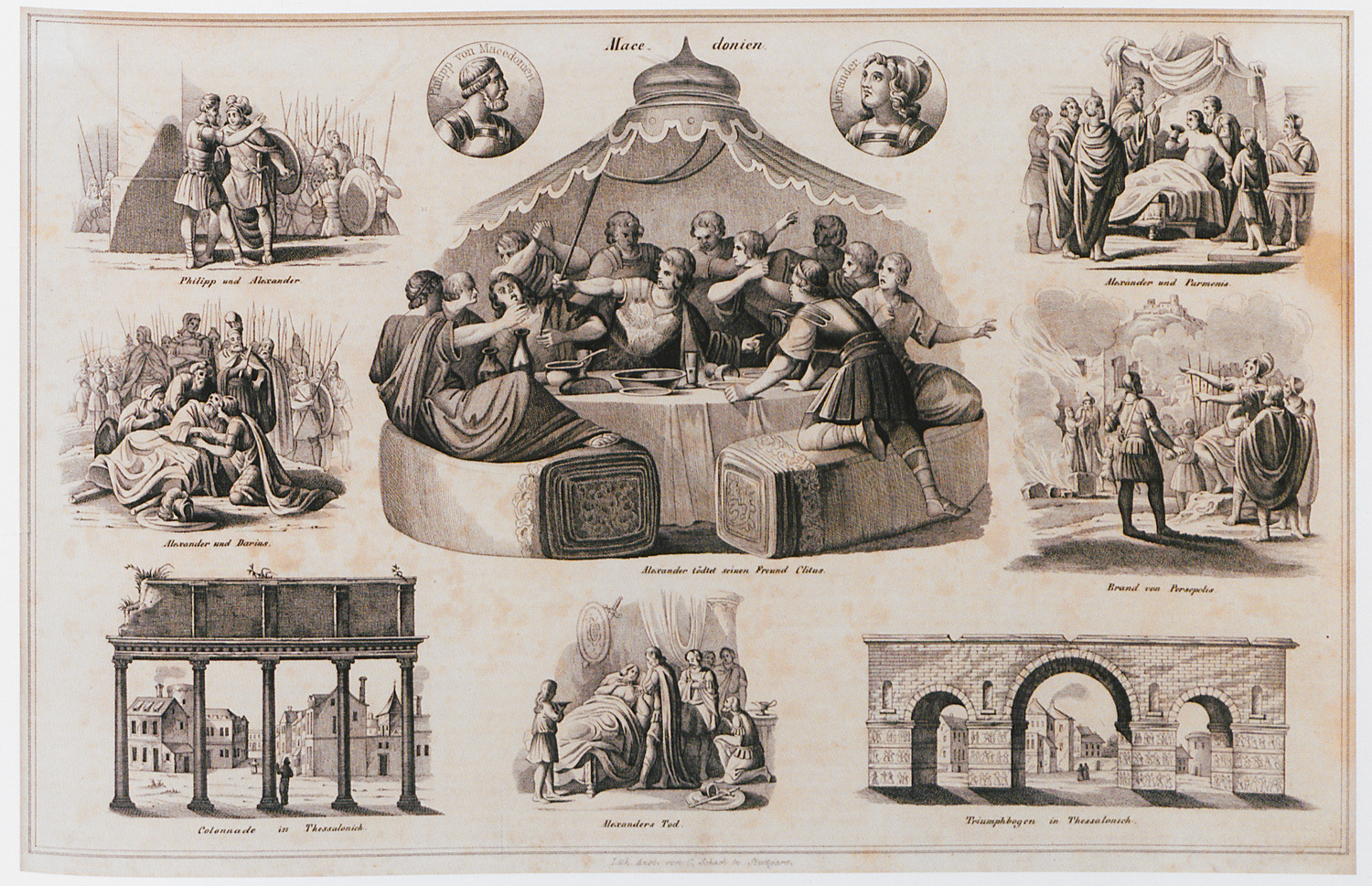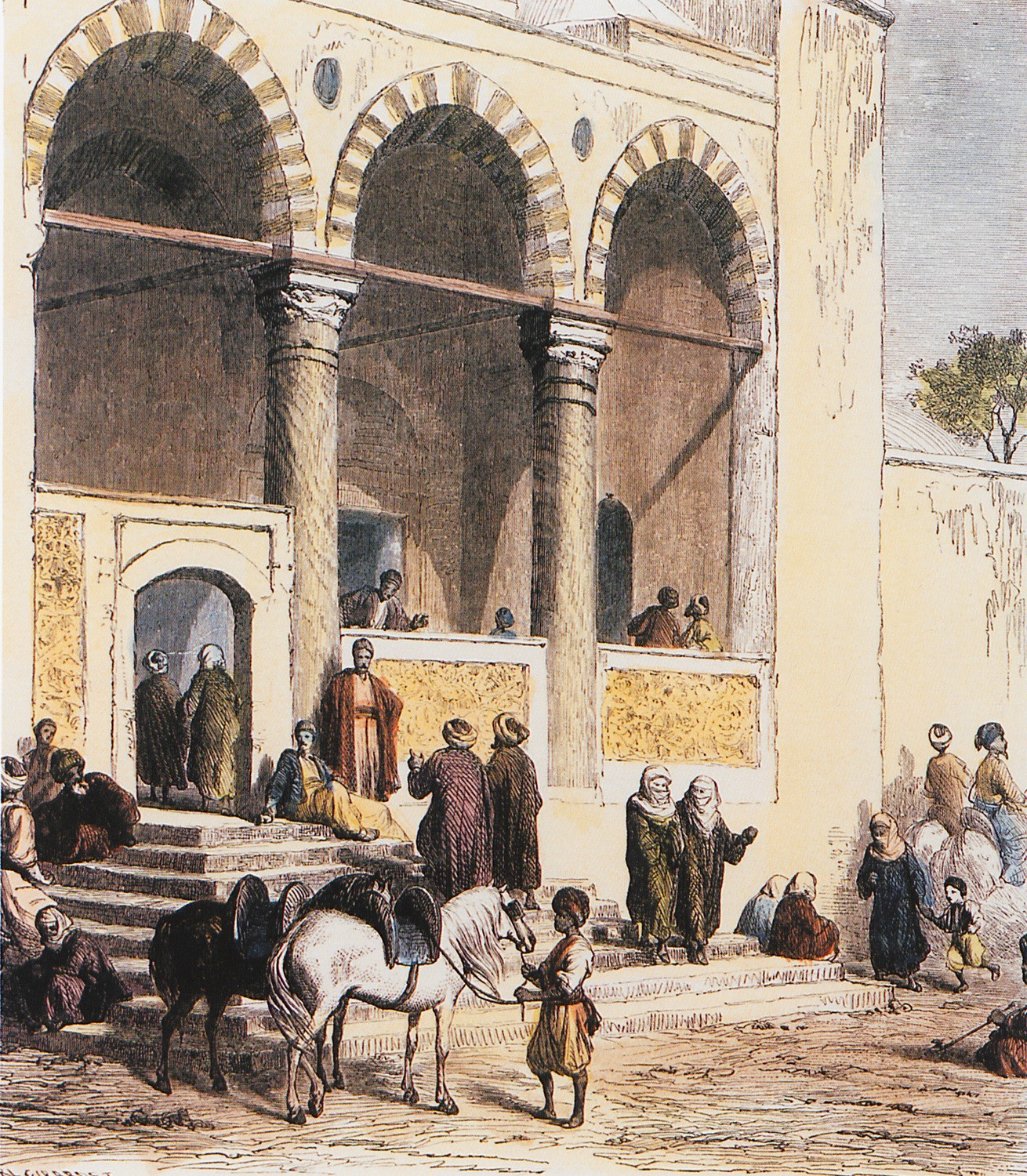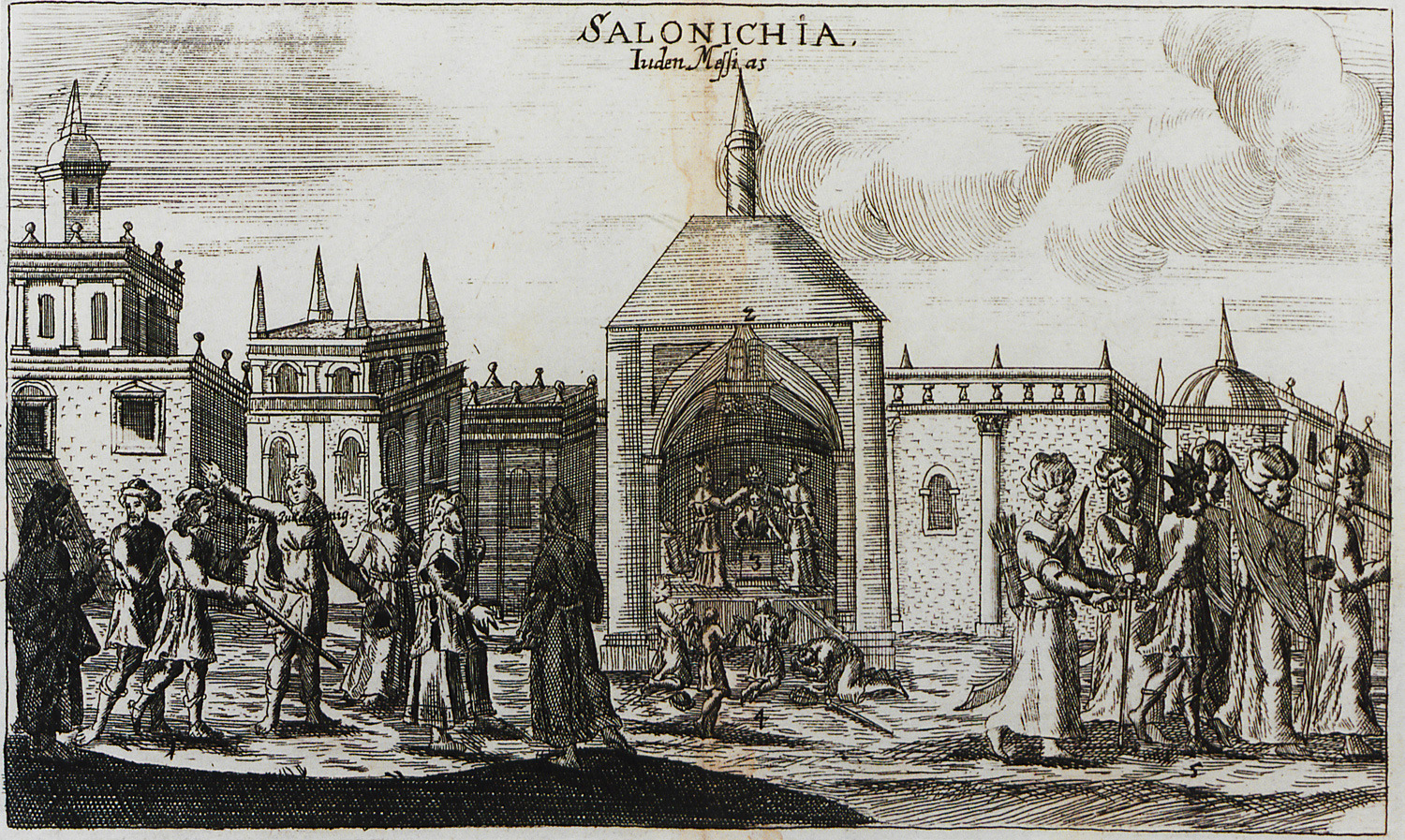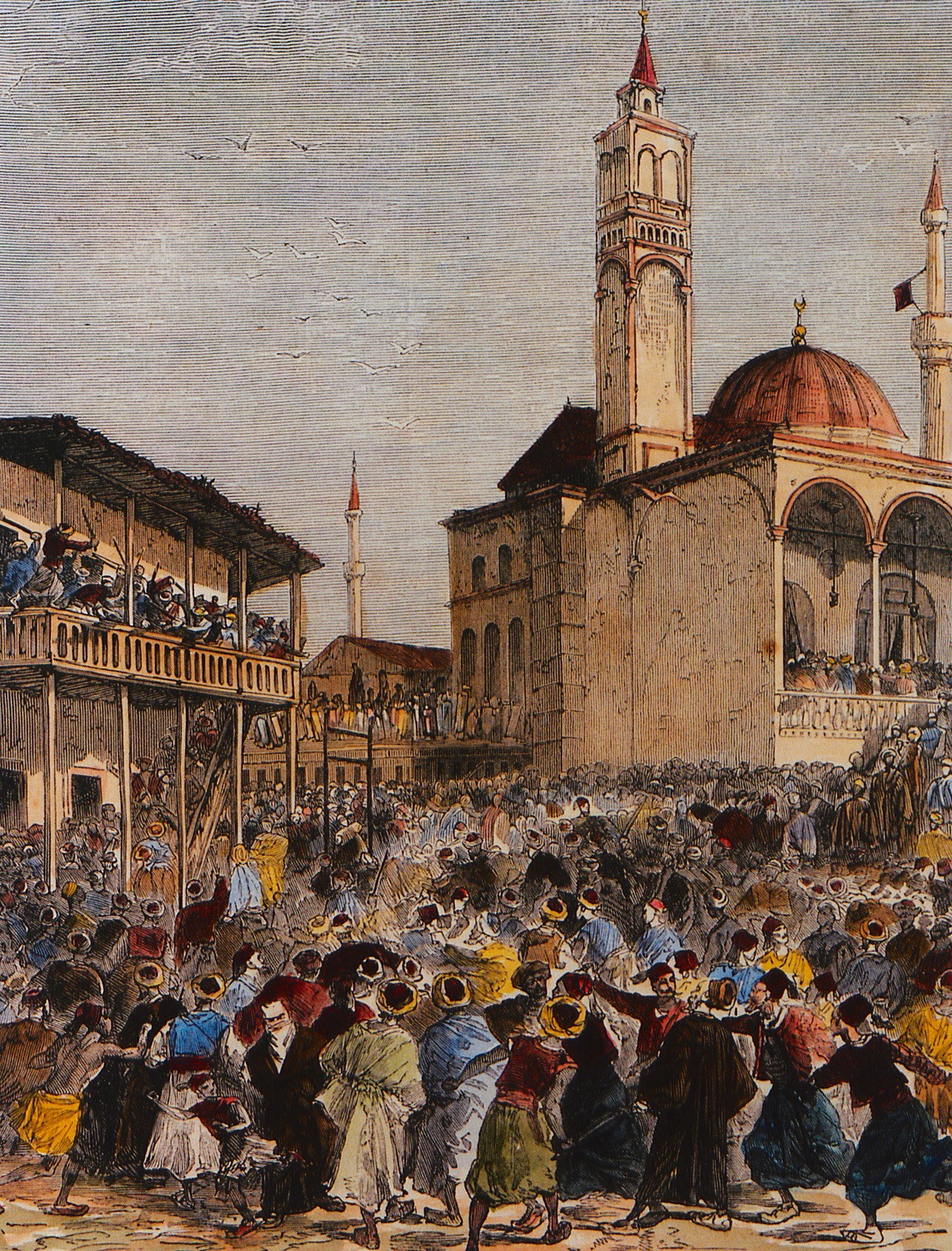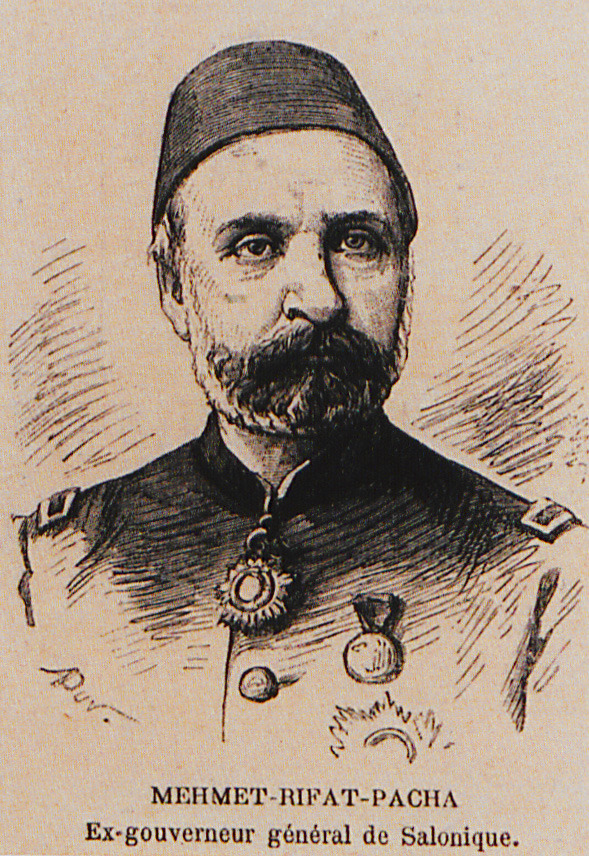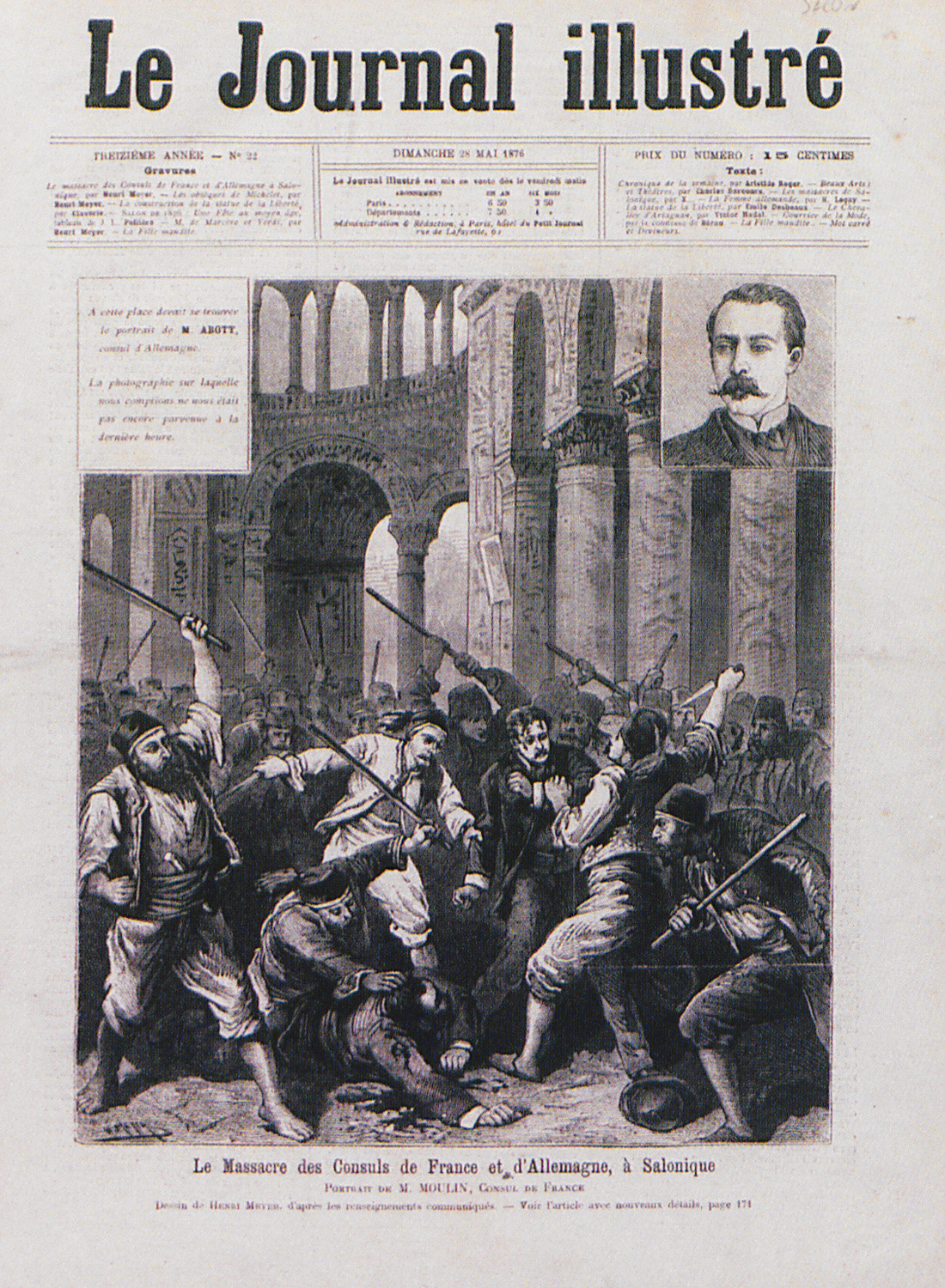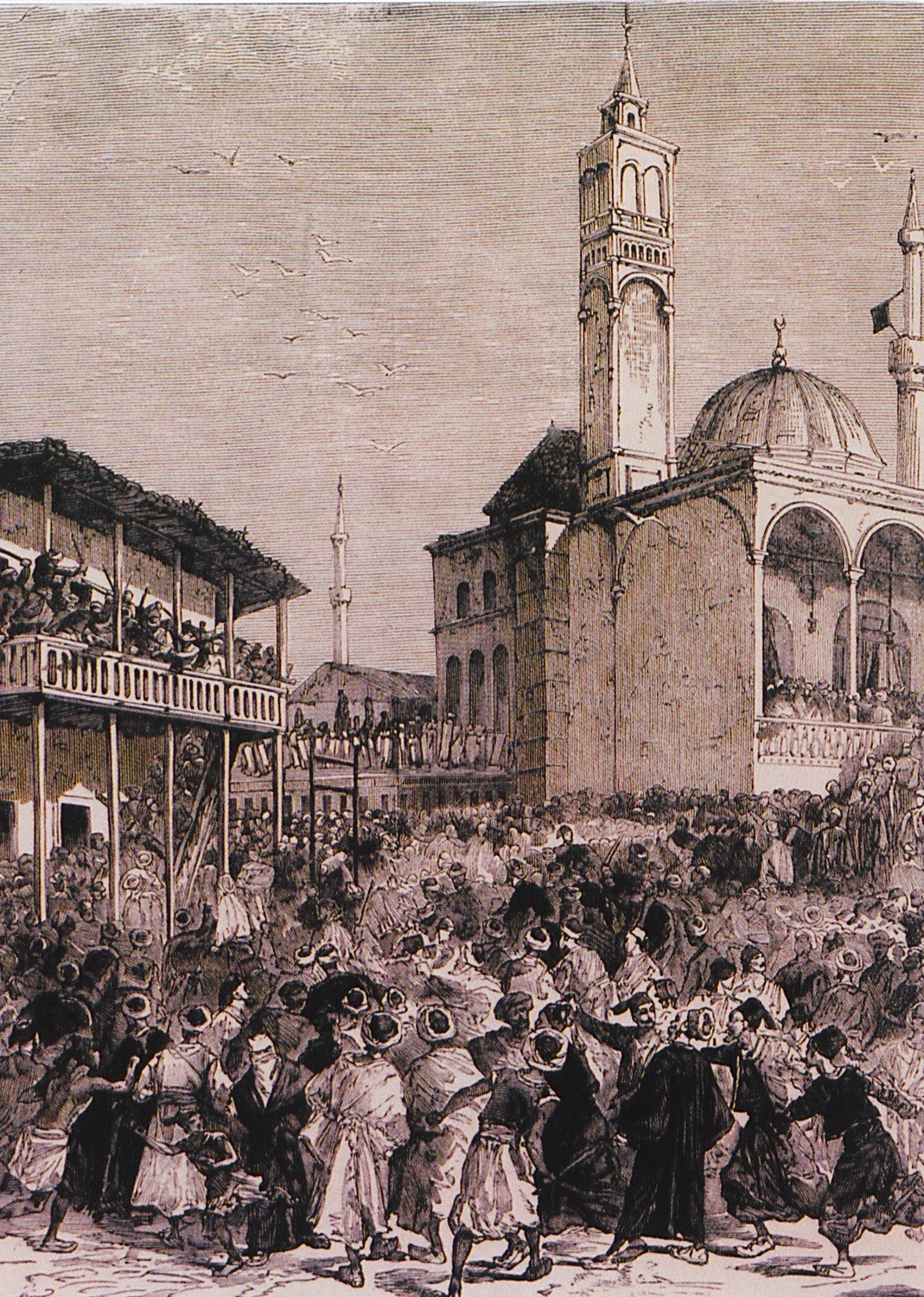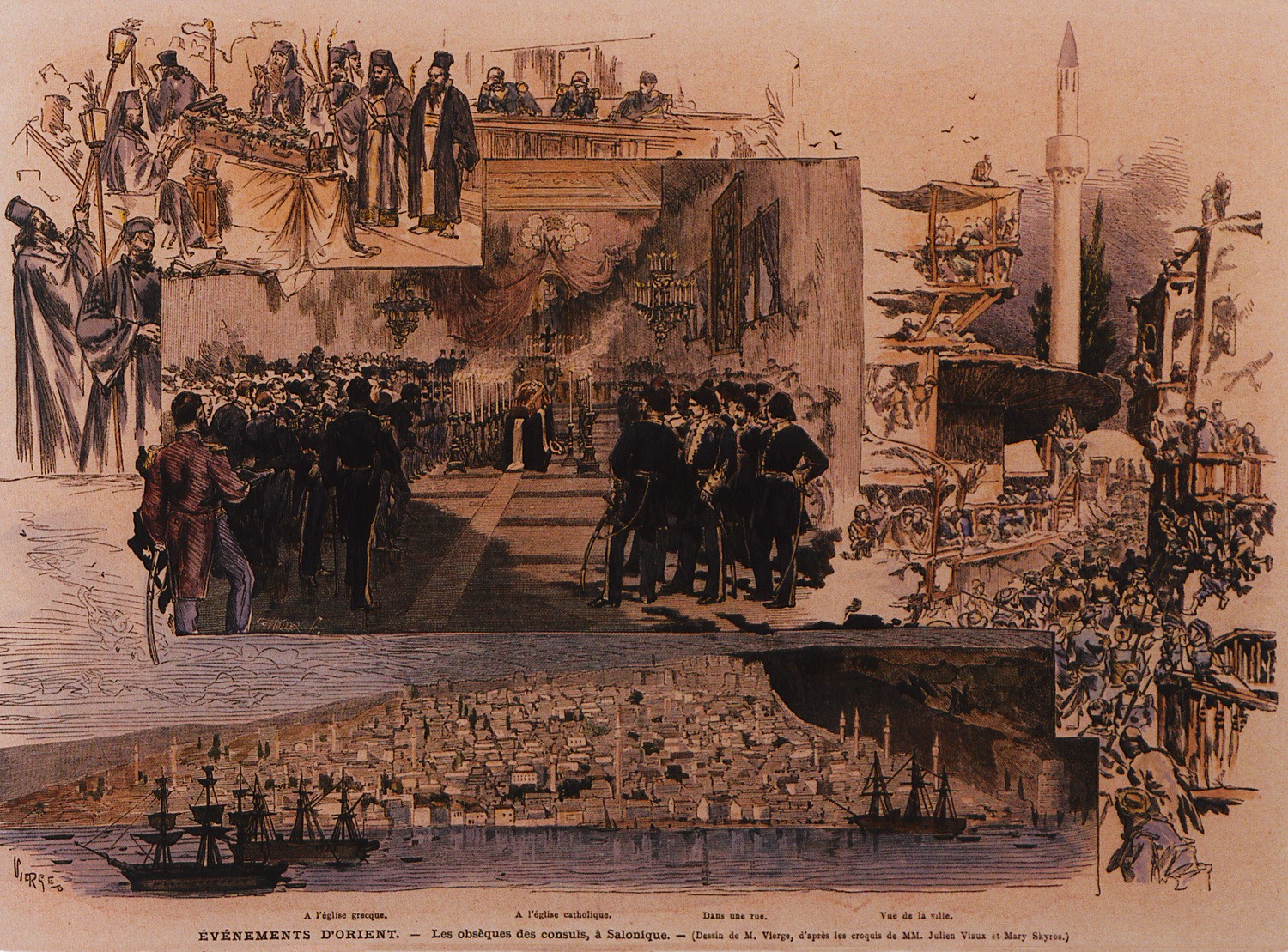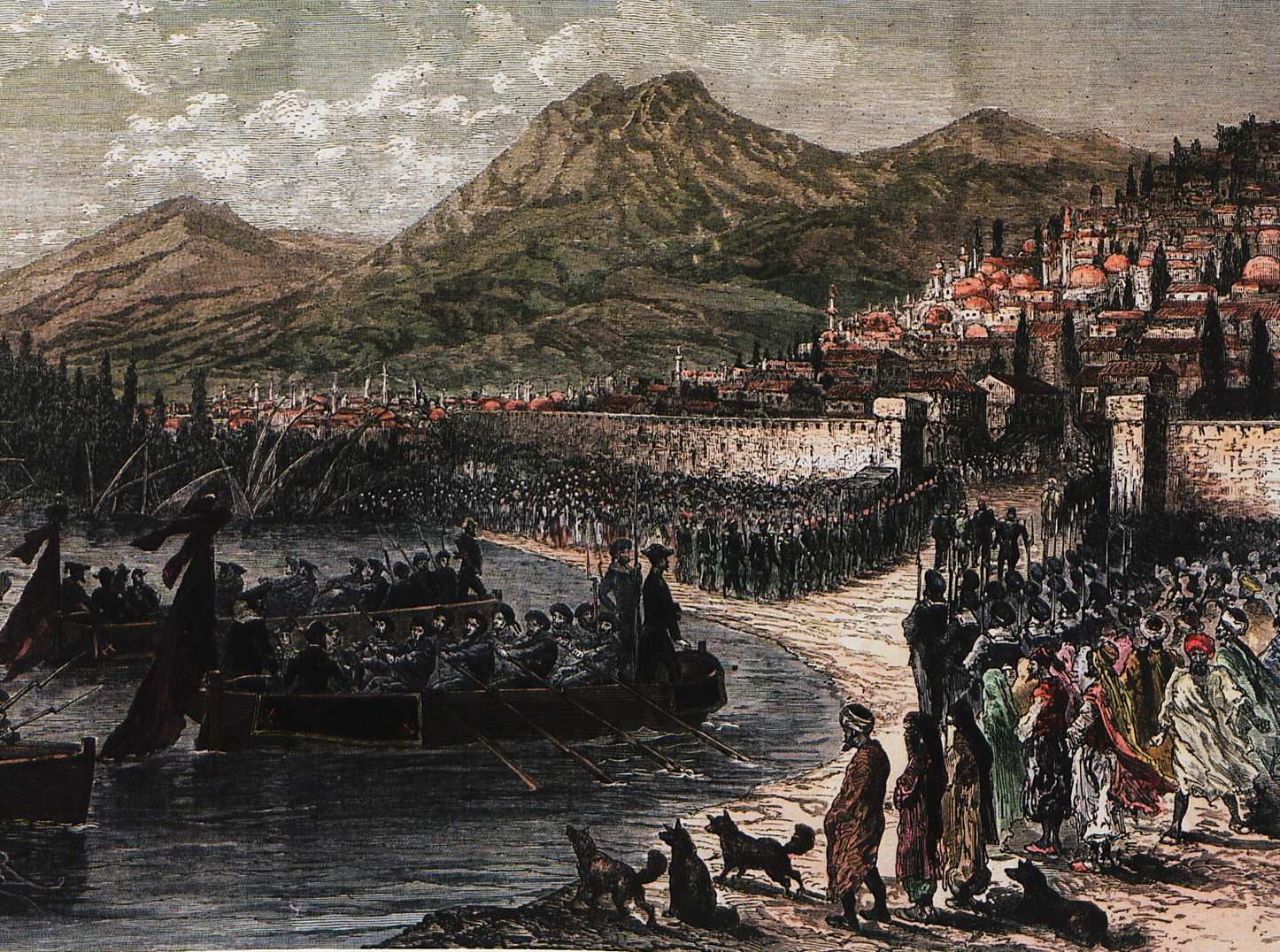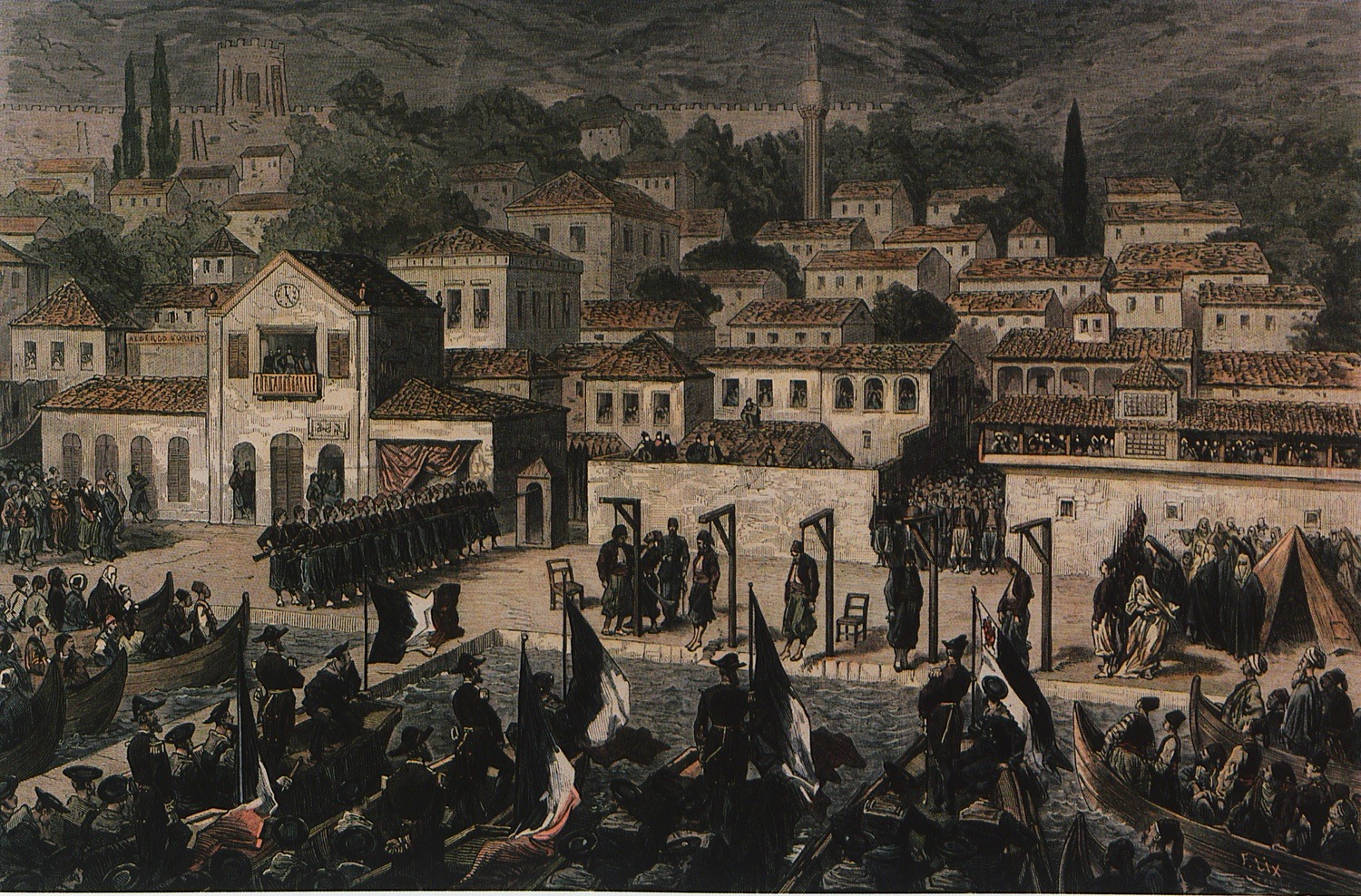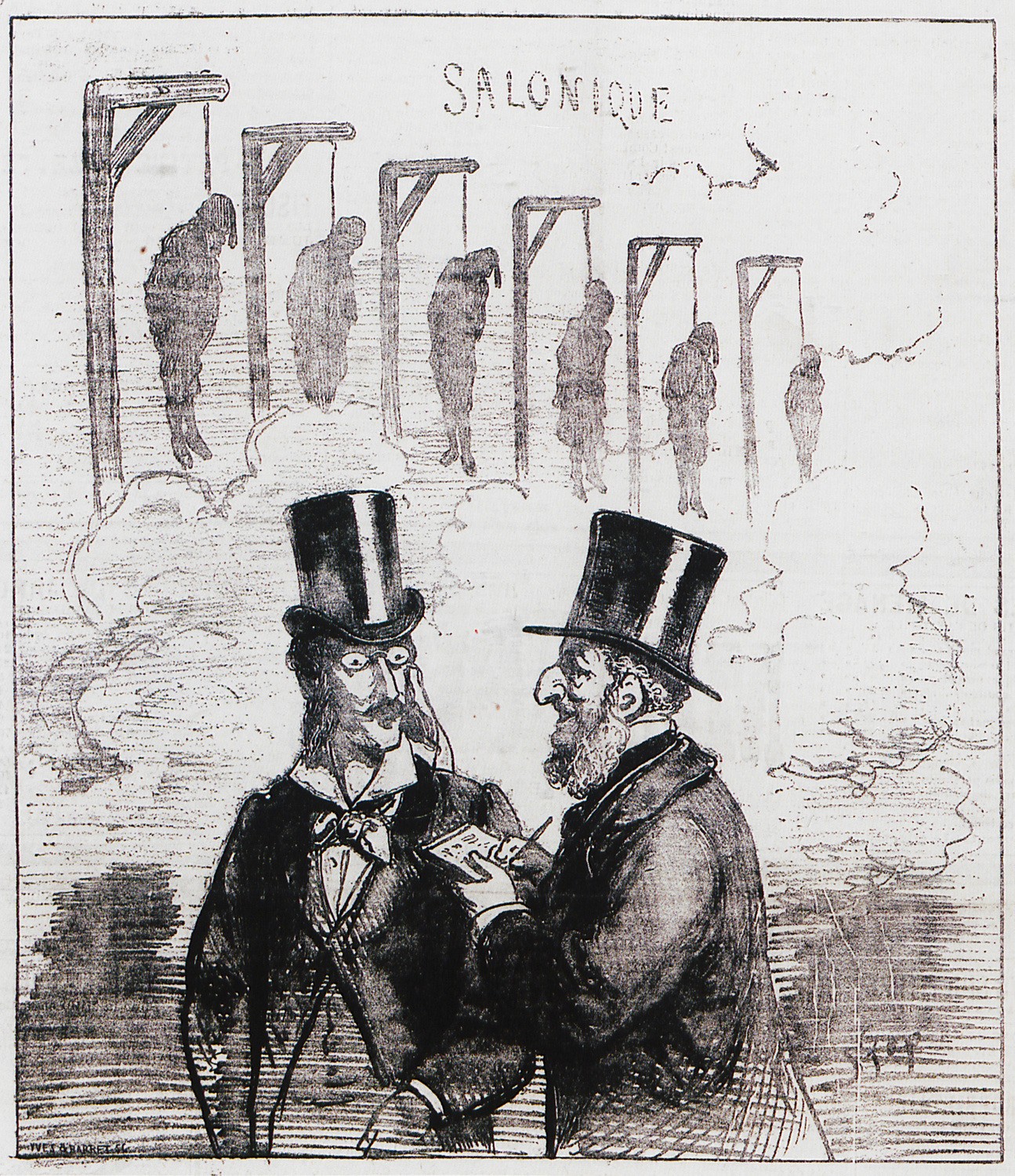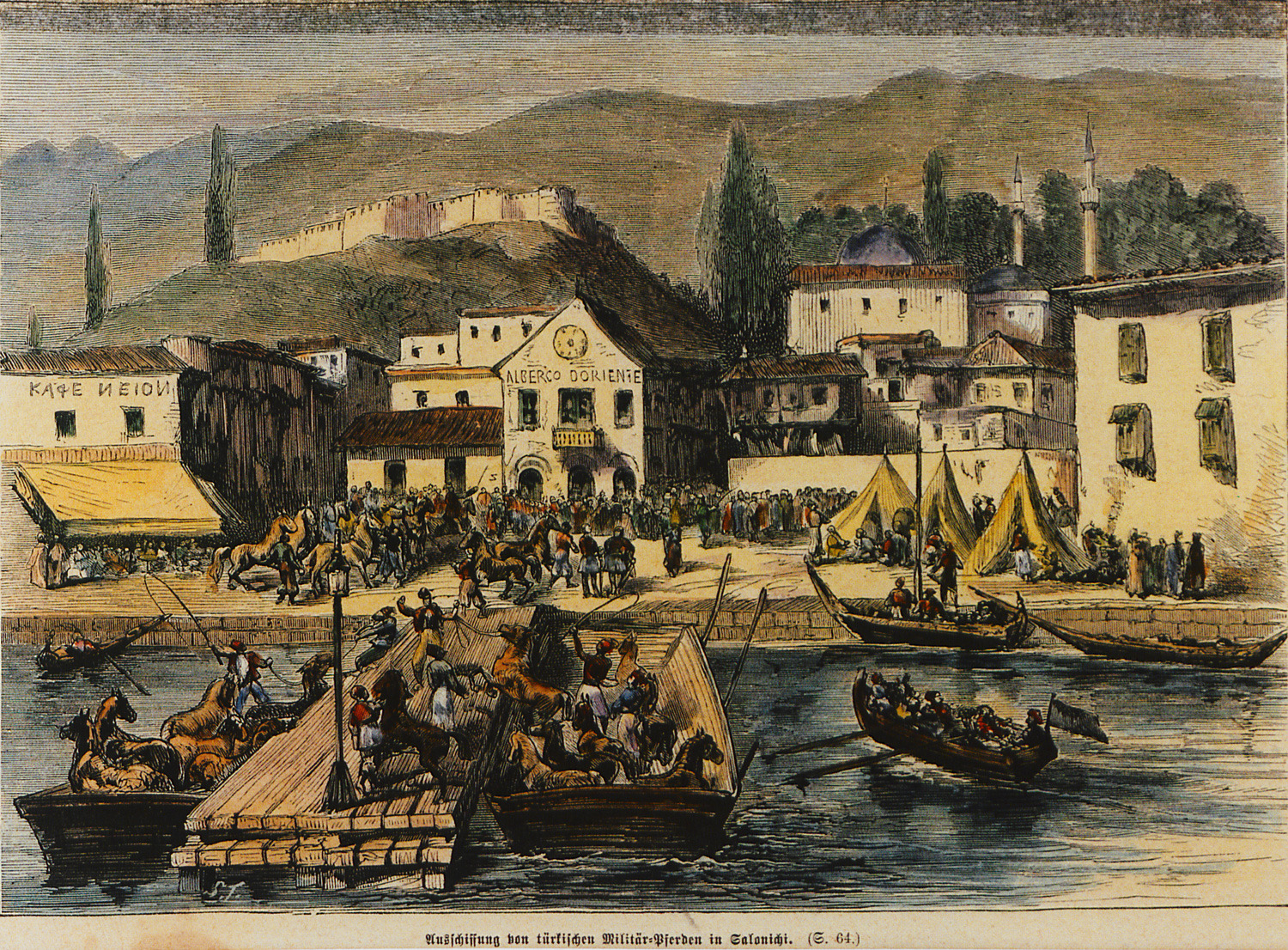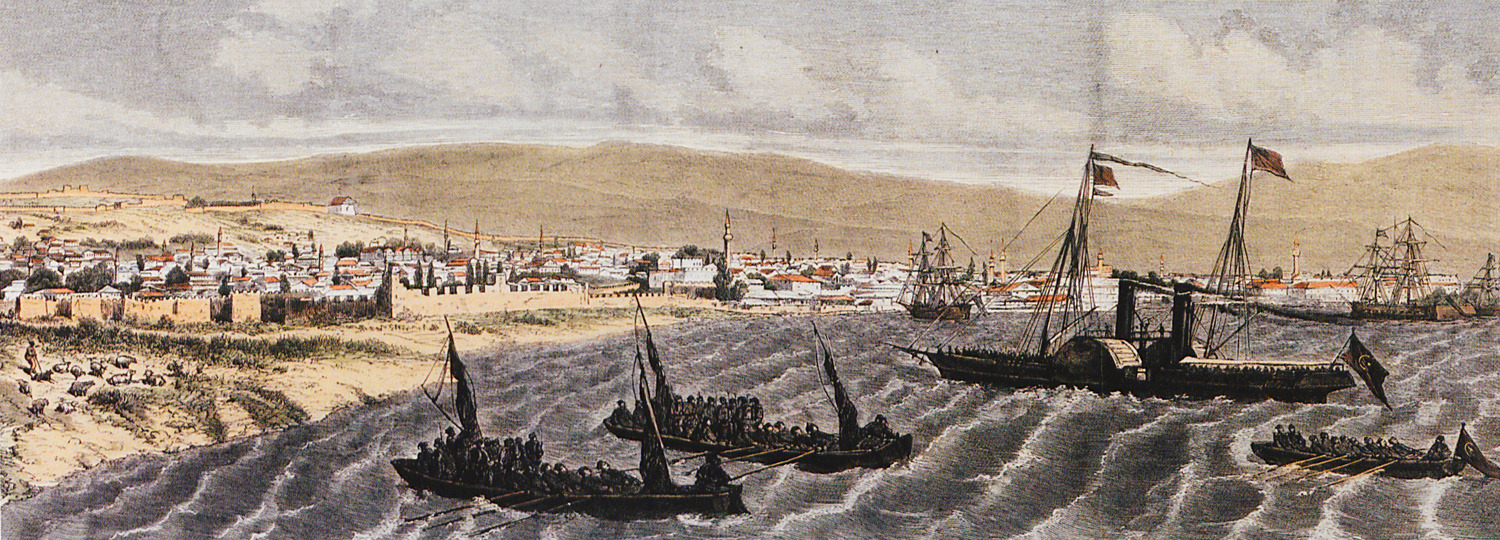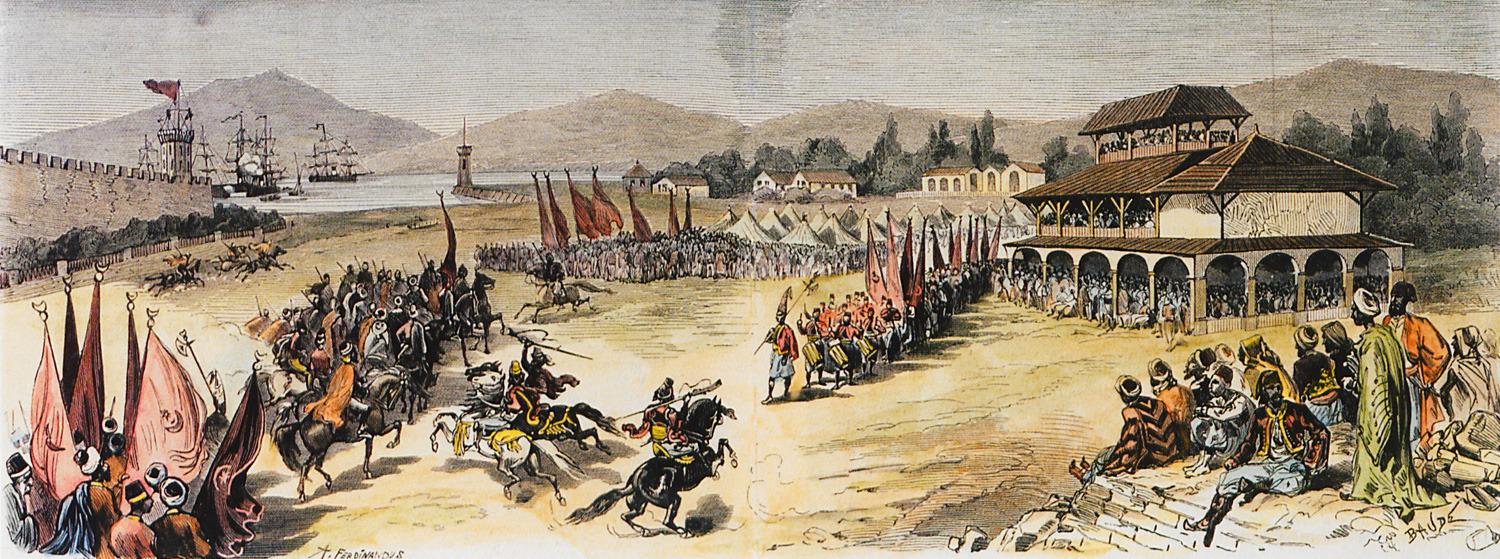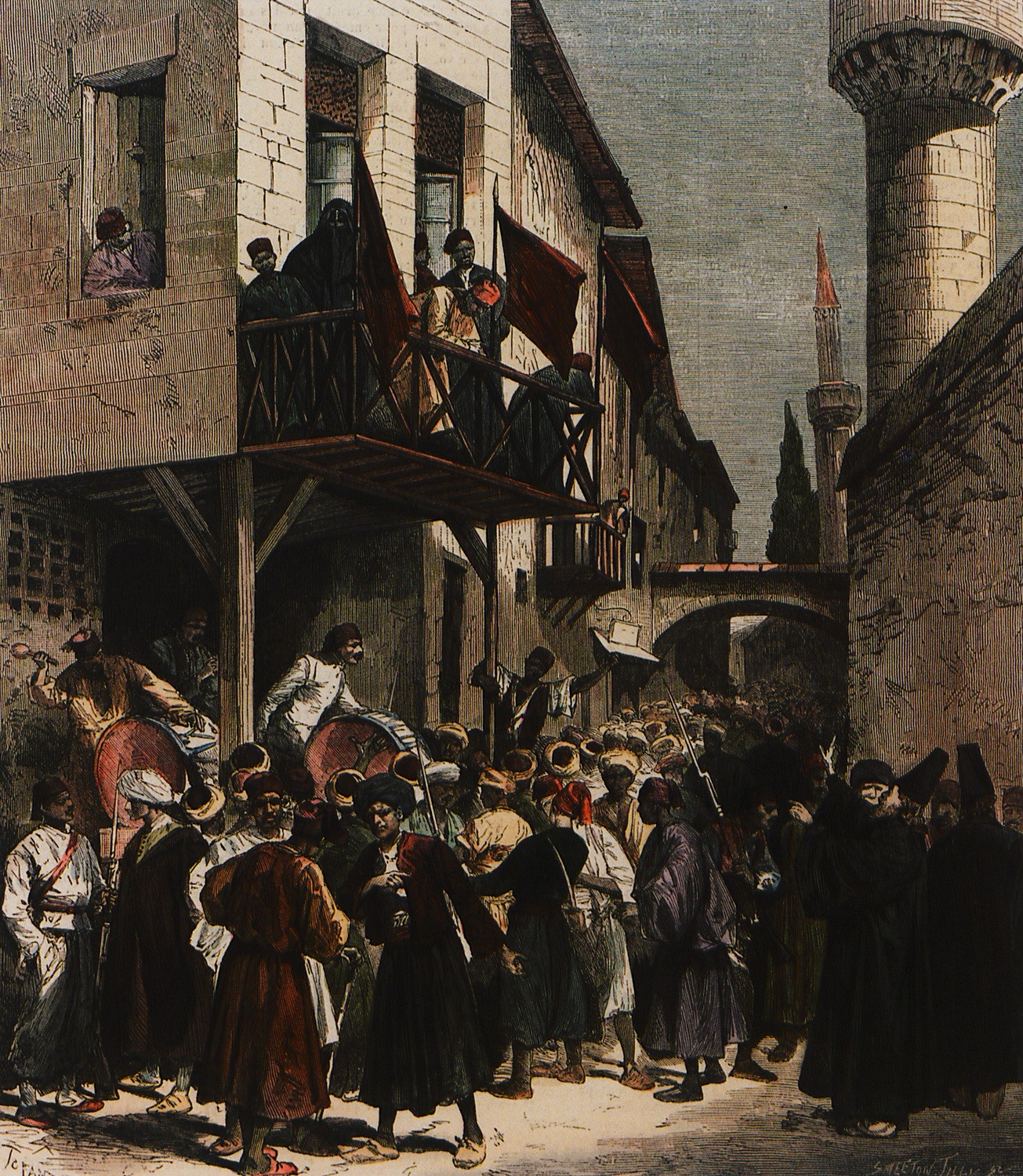Costume - Hats and headwear (4316 Subjects)
Bride from Thessaloniki. From reedition of the work by Cesare Vecellio, Costumes anciens et modernes, Habiti antichi et moderni di tutto il Mondo di Cesare Vecellio, Paris, Firmin-Didot, 1859-60.
Jewish wetnurse with infant. From: Adelaide Mary Walker, Through Macedonia to the Albanian Lakes, London, Chapman and Hill, 1864.
Bulgrian bride from Kalamaria. From: Adelaide Mary Walker, Through Macedonia to the Albanian Lakes, London, Chapman and Hill, 1864.
Bulgarian woman from Kolakia (Halastra). Peasant woman from Baltza (Melissochori) on the outskirts of Thessaloniki. From: Raphäel Jacquemin, Iconographie générale et méthodique du costume du IVe au XIXe siècle (315-1815) [...], Paris, 1863-1869.
Women from Thessaloniki. From The London Illustrated News, 1870.
National costumes, mainly of peasants in various parts of Europe, among which a Turkish woman and an ulema from Thessaloniki. From:Meyers Konversations-Lexikon, Leipsig, late 19th century.
Women from Shkodër. Man from Edirne. Muslim woman from Thessaloniki. From the popular engraving series Münchener Bilderbogen, Braun-Schneider, Munich, c. 1890.
Young woman from Thessaloniki. Marius Bernard: Turquie d'Europe et d'Asie. De Salonique à Jérusalem, Paris, Henri Laurent, 1899.
Jewish young woman from Thessaloniki. Jewish man. Ambassafor guard in Thessaloniki.
Golden Gate or Axios (Vardar) Gate in Thessaloniki. From: E. M. Cousinéry, Voyage dans la Macédoine, Paris, 1831.
View of Incantadas monument in the Roman agora of Thessaloniki. E. M. Cousinéry, Voyage dans la Macédoine, Paris, 1831.
Arch of Galerius in Thessaloniki.
View of Incantadas monument in the Roman agora of Thessaloniki, based on earlier drawing from the edition by James Stuart and Nicholas Revett. Lithograph, c. 1830.
Reliefs from Magnesia and Thessaloniki at the court of Louvre Museum. From Poliorama Pittoresco review, 1843.
Composition of scenes from the rise and fall of Sabbatai Zevi, the rabi who claimed to be the Messiah of the Jews until he was forced to convert to Islam by the Ottoman Sultan (17th century). Sabbatai Zevi claims to be the Messiah. Sabbatai Zevi enthroned by his followers. Ottoman soldiers arrest Sabbatai Zevi in the Dardanelles. From: J. Chr. Wagner, Delineatio Provinciarum Pannoniae et Imperii Turcici in Oriente, Augsburg, 1684.
Murder of the French and German consuls by the mob in Thessaloniki, May 1876. From The Illustrated London News, May 1876.
Mehme Rifa Pasha, general governor of Thessaloniki, deposed after the murder of the consuls in May 1876. From Le Monde Illustré (1876).
Murder of the French and German consuls by the mob in Thessaloniki, May 1876. Portrait of murdered consul of France Jules Moulin. From Le Journal Illustré, May 1876.
Murder of the French and German consuls by the mob in Thessaloniki, May 1876.
Scenes from the funerary services for the consuls in Thessaloniki (May 1876). View of Thessaloniki. From Le Monde Illustré, May 1876.
Arrival of the French and German inspectors entrusted with solving the murder of the consuls in Thessaloniki. From L'Univers Illustré, 1876.
Hanging of the convicted for the murder of the consuls, 16 May 1876. From Le Monde Illustré, 1876.
Caricature on the execution of the men convicted for the murder of the consuls in May 1876. From French satirical newspaper Le Charivari, 1876.
Horses of the Ottoman cavalry disembark in Thessaloniki after the murder of the consuls in May 1876. From German newspaper of the era.
Turkish battleships approach the port of Thessaloniki in the summer of 1876, at the time of Herzegovina uprising. From German newspaper.
Bashi-bazouk camp outside the walls of Thessaloniki at the time of Herzegovina uprising. From Le Monde Illustré, 1876.
Enrollment office of the Ottoman army in Thessaloniki at the time of Herzegovina uprising. From Le Monde Illustré, 1876.


